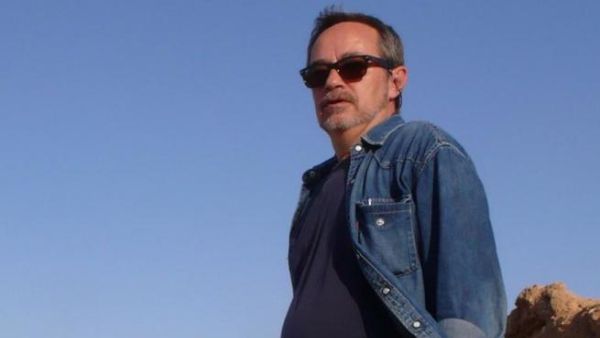Directing a film in the midst of a civil war is no easy task. This is why, when contacted by Al-Akhbar to talk about his latest project, Syrian director Mohammad Malas preferred to use the opportunity to lobby for the release of his sound engineer, Ghanem al-Mir, who was taken by government forces from the hotel in Tartous where the crew is staying.
“I cannot find a clear justification for the arrest of my colleague and friend Ghanem al-Mir. He is one of the best sound engineers in Syria,” Malas said, speaking over the phone from the coastal city. “He has worked on some of the best films produced in Syria.”
Other than revealing the name of his forthcoming film, Namocinema, the director categorically refused to reveal any other details about it to Al-Akhbar “until we have completed the filming process.”
Malas’ priority may be keeping his cast and crew safe, but his fans and followers are hungry for details on his latest project.
Al-Akhbar has managed to learn the broad outline of the film, which heralds the return of this giant of Arab cinema after a long absence, and at a critical moment in the region’s history.
The script, which Malas co-wrote with the much younger Samer Mohammad Ismail, plays with the spiritual concept of reincarnation, one of the most controversial tenets of eastern religions and some Syrian sects.
The story revolves around the life of a young Damascene woman named Zeina who killed herself in the late 1980’s. She is reincarnated as Ghalia, a young woman from a coastal family.
Here, reincarnation is used as a tool for exploring the experiences of two generations in Syria, that of the 1980’s and the youth of today.
The film is an attempt to communicate the multiple social, economic and political problems today’s youth have inherited from previous generations. This becomes particularly clear as the story moves from the period of the early 1960’s, when the Baath Party came to power, through the present day, mapping all the political and historic twists and turns along the way.
Namocinema dramatizes how this history, with all its political and social upheavals, wreaks havoc on the lives of ordinary people.
Through this story, Malas seeks to convey the heavy inheritance of both generations – a mix of past failures and future disappointment – which explains Malas’ collaboration on the script with a younger artist.
The film is reportedly being shot in an old Damascene house in Damascus’ historic Souk Sarouja and the Tartous countryside near the coast.
By Anas Zarzar








